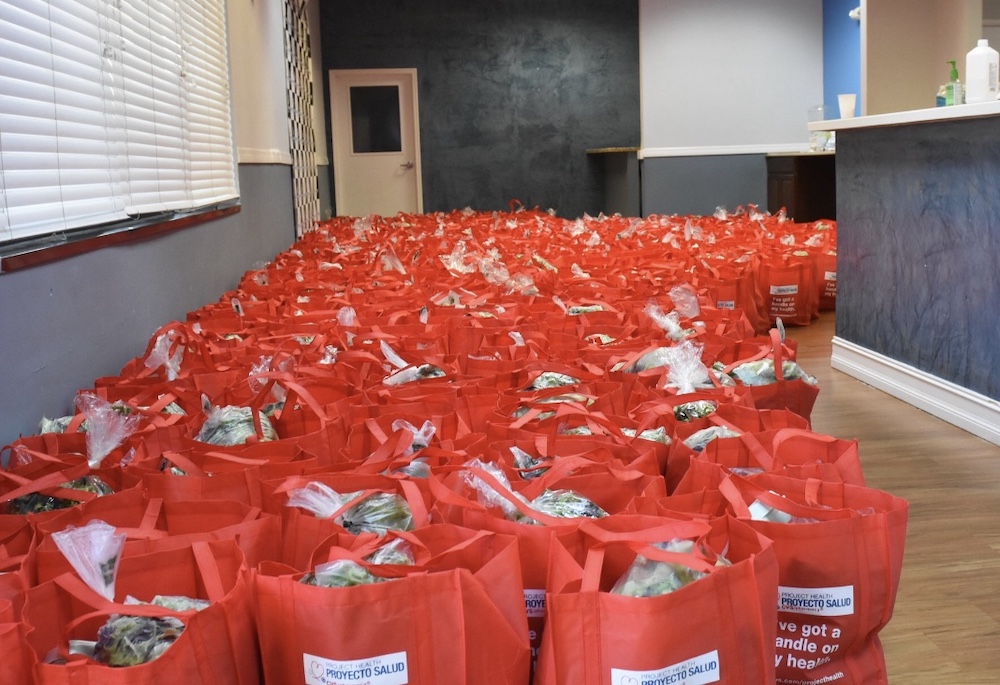POMPANO BEACH– Florida Baptists are serving on the front lines to meet urgent hunger needs triggered by the COVID-19 virus.
As the response to the virus has shut down non-essential businesses, families have seen their places of employment close and jobs lost. Many do not know where to find their next meal.
So, they wait in lines—sometimes for hours—hoping to put food on their table.
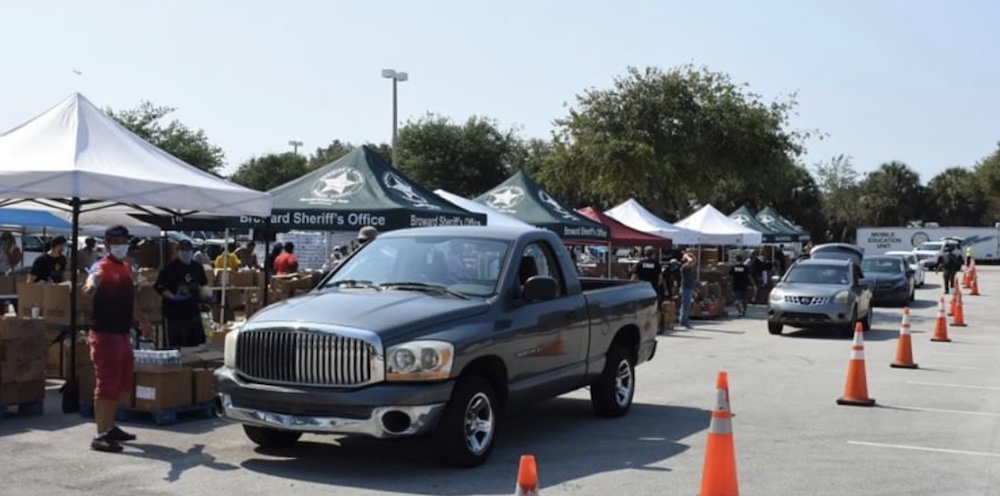 At least 2,500 cars snaked along the parking lot of New Hope Brazilian Baptist Church in Pompano Beach two weeks ago, the line becoming so long, local law enforcement officers arrived to provide traffic control. It was the third Saturday the new church plant distributed food to their neighbors as numbers of the needy increased exponentially.
At least 2,500 cars snaked along the parking lot of New Hope Brazilian Baptist Church in Pompano Beach two weeks ago, the line becoming so long, local law enforcement officers arrived to provide traffic control. It was the third Saturday the new church plant distributed food to their neighbors as numbers of the needy increased exponentially.
“A lot of people have lost jobs,” said Vilmar Mansur, who directs the urban church’s food pantry. “They worked cleaning homes, painting and in restaurants. Some are sick. Now they have no place to turn.”
As many as 60 volunteers assist in the church’s ministry, always adhering strictly to COVID-19 CDC guidelines, filling bags and boxes and then loading them into trunks.
Mansur works with Feeding South Florida, a local food bank affiliated with the national Feeding America, which provides the food for the church to distribute.
But the need for food is quickly overwhelming local food banks forcing churches to find other sources of food, said Marc Johnston, Florida Baptists’ community ministries catalyst.
He is aware of at least 112 Florida Baptist churches–from Pensacola to the Florida Keys–with food pantry ministries serving food insecure residents in their communities.
Food pantries normally rely heavily on surplus food from restaurants and unsold, nearly expired and damaged goods from grocery stores to distribute to families. With restaurants closed and groceries depleted, finding food has been a challenge for these Florida Baptist ministries. They have been forced to look for other organizations with available sources.
Pastor Mike Sellars has been scrambling to find additional resources for the monthly distribution operated by First Baptist Church in rural Flora City. Their major food bank had felt the pinch from the unprecedented needs caused by the coronavirus shutdown.
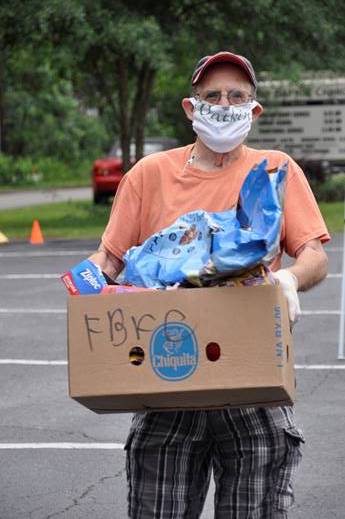 As Sellars was scouring for products to distribute in April, he contacted Johnston who provided him with pallets of beans and rice to supplement what he had found. He also was able to gather produce from local farmers and items from the Florida Baptist Children’s Homes in Lakeland. It is an exhausting and time-consuming process.
As Sellars was scouring for products to distribute in April, he contacted Johnston who provided him with pallets of beans and rice to supplement what he had found. He also was able to gather produce from local farmers and items from the Florida Baptist Children’s Homes in Lakeland. It is an exhausting and time-consuming process.
Mining every available source, the Flora City church provided groceries for 500-600 people in April. In March they fed 800 families. Nearly 50 new families have searched for the church’s food pantry in recent days.
The church has provided food assistance to the middle-low income community for nearly 13 years, even before Sellars arrived a year ago. “It is a well-oiled machine,” the pastor said, as many church members volunteer their time.
“It is an awesome privilege to partner with such a wonderful and loving church,” he said. “Our church has a heart for the community. They don’t want to see anyone suffer.”
Situated on Marco Island, Our Daily Bread food pantry is the only food assistance program along the southwest tip of Florida stretching from Naples to Everglades City. Though located in one of the state’s premier resort communities, the pantry meets the needs of the food insecure six days a week, including a drive-through ministry each Saturday and a mobile food pantry traveling into neighborhoods on Friday.
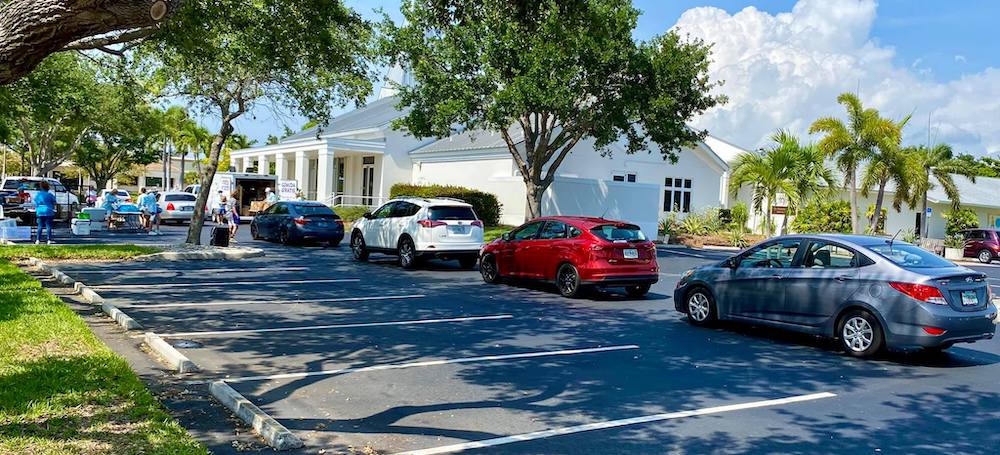 Many of the island’s residents work in the service industry, maintaining the resort for wealthy tourists and homeowners. Nearly 40 percent of the students on the island are at or below the poverty line, said Vicki Johnson, director of the Our Daily Bread, qualifying them for subsidized school lunches. Across the bridge to the mainland that number jumps to 90 percent of the students.
Many of the island’s residents work in the service industry, maintaining the resort for wealthy tourists and homeowners. Nearly 40 percent of the students on the island are at or below the poverty line, said Vicki Johnson, director of the Our Daily Bread, qualifying them for subsidized school lunches. Across the bridge to the mainland that number jumps to 90 percent of the students.
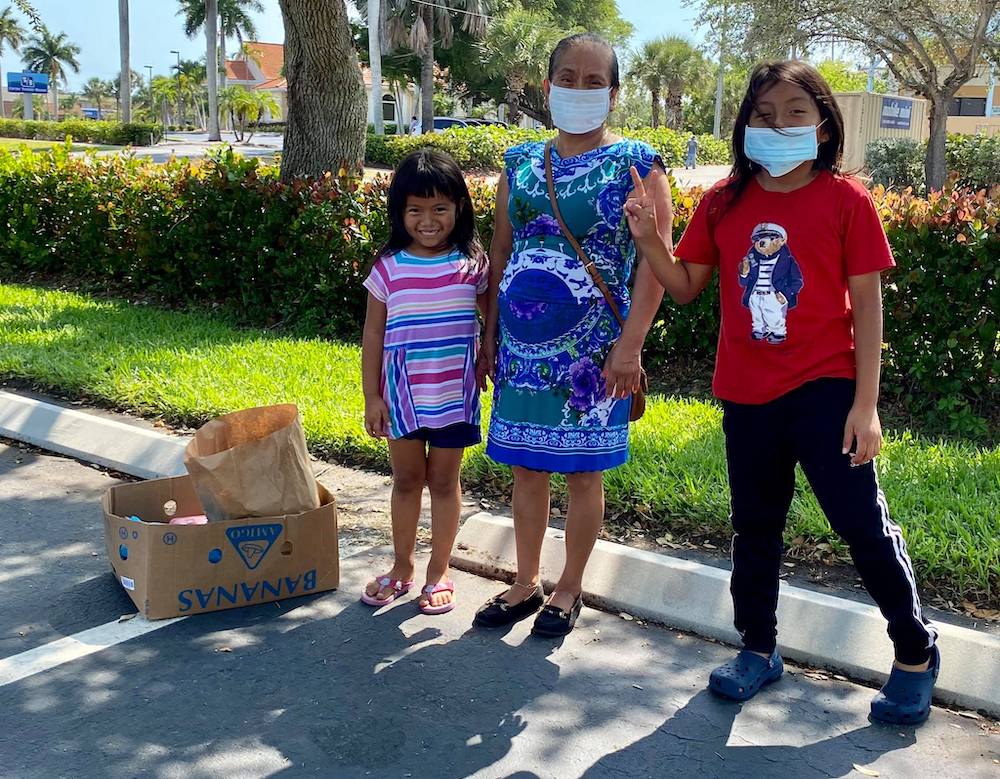 Our Daily Bread originated as a ministry of Family Church on Marco Island, but a need to apply for additional grants and donations resulted in the pantry creating its own non-profit organization.
Our Daily Bread originated as a ministry of Family Church on Marco Island, but a need to apply for additional grants and donations resulted in the pantry creating its own non-profit organization.
Those donations allow the pantry to purchase food when supplies are depleted. Churches on the island have adopted the ministry. When the coronavirus forced winter snowbirds to leave the island, boxes placed at condos and residences collected leftover items. All these resources prove invaluable to the pantry.
Since the coronavirus, the pantry has responded to the overwhelming needs in the community.
“They are very, very grateful,” said Johnson. “Nearly 50 percent of those that come to ask for food, say, ‘I’ve never had to do this before, I’m so embarrassed.’”
“We often hear, ‘I don’t know what we would do if you weren’t here.’”

